Applications of High-Density Tungsten Alloy Counterweight Blocks in the Automotive Industry
- Details
- Category: Tungsten Information
- Published on Tuesday, 17 June 2025 11:27
- Written by Xiaoting
- Hits: 7
In the complex structure of an automobile, a seemingly minor yet critical component—the counterweight block—plays a vital role. Though small, it is closely linked to the vehicle’s stability and handling, serving as an unsung hero in ensuring driving safety and comfort.
As the automotive industry continues to evolve, the performance requirements for counterweight blocks have grown increasingly stringent. Traditional materials like lead blocks, while dense, pose toxicity risks to the environment and human health, while iron blocks are susceptible to magnetic interference and prone to oxidation, corrosion, and deformation. Against this backdrop, high-density tungsten alloy counterweight blocks, with their superior mechanical, chemical, and thermal properties, have emerged as a key player in the automotive sector.
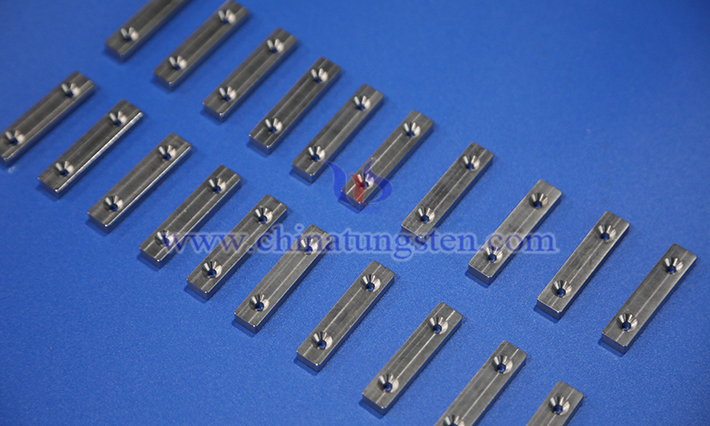
I. Unveiling the Mystery of High-Density Tungsten Alloy Counterweight Blocks
The standout feature of high-density tungsten alloy, as its name suggests, is its high density, typically ranging from 16.5 to 19.0 g/cm³. This allows it to provide greater weight in the same volume, making it ideal for applications requiring added mass, such as automotive counterweights.
Beyond its density, high-density tungsten alloy boasts exceptional strength and hardness, enabling it to maintain stable structure and performance under significant external forces without deforming or failing, ensuring reliable operation across complex driving conditions.
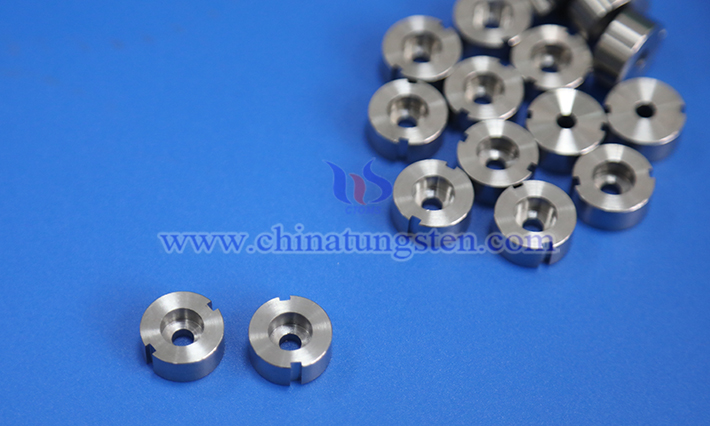
It also exhibits excellent corrosion resistance and oxidation resistance. Vehicles face various environmental challenges like humid air and rain, which can rust and corrode parts. Tungsten alloy counterweight blocks, with their superior resistance, can withstand these harsh conditions over long periods, extending their lifespan, reducing replacement frequency, and lowering maintenance costs.
Additionally, tungsten alloy offers environmental benefits. Unlike lead blocks, it is non-toxic and non-radioactive, posing no harm to health or the environment, aligning with modern sustainability demands as a green material choice.
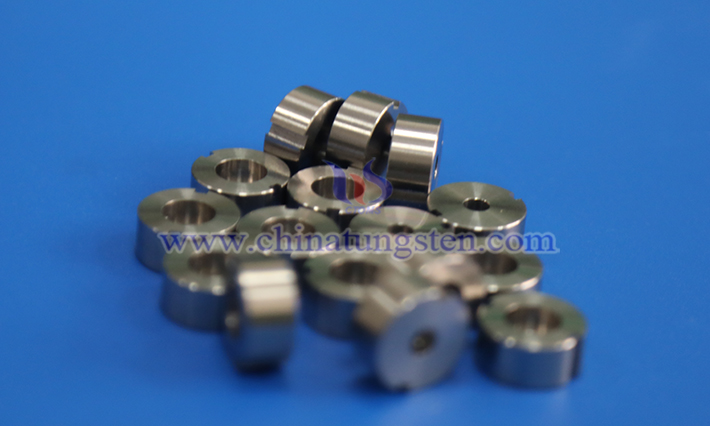
II. Applications of High-Density Tungsten Alloy in Automobiles
1. The Speed Secret on the Racetrack
In motorsports, every detail impacts speed and victory, and high-density tungsten alloy counterweight blocks are a racer’s ally in achieving peak performance. Take Formula 1 (F1) racing, for example, where extreme speeds and frequent turns demand exceptional vehicle control and stability. The high density of tungsten alloy allows weight to be added in limited spaces, optimizing weight distribution and enhancing handling.
Racing involves complex maneuvers—acceleration, deceleration, and cornering—requiring flexible center-of-gravity adjustments to suit different tracks. Tungsten alloy counterweights can be strategically placed in areas like the chassis or engine bay, tailored to design needs and driver preferences, ensuring a balanced center of gravity. This reduces body roll and loss-of-control risks during turns, enabling precise trajectory control and faster cornering.
Moreover, the alloy’s high strength and crack resistance allow counterweights to withstand the centrifugal forces and impacts of high-speed racing, ensuring structural stability. In endurance races lasting hours over perse conditions, these blocks maintain consistent performance, keeping the car at its best.
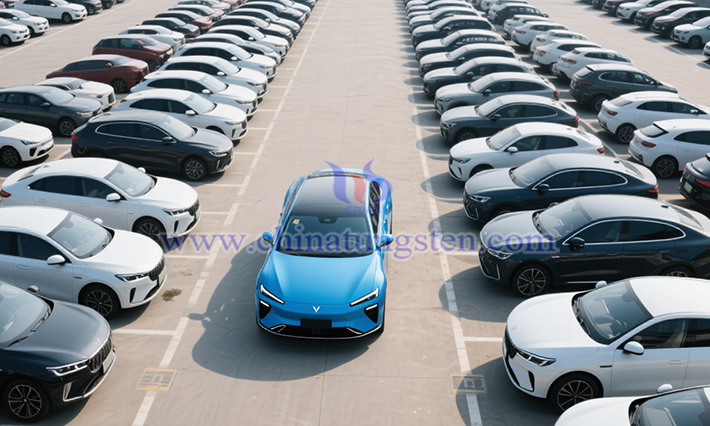
2. High-Density Tungsten Alloy Crankshaft Counterweights
High-density tungsten alloy crankshaft counterweights leverage their high density, excellent dynamic balance, and structural stability to enhance engine performance. During engine operation, crankshafts experience periodic inertial forces from piston-connecting rod movements, leading to vibration and noise. Precisely calculated mass distribution in tungsten alloy counterweights offsets centrifugal force imbalances, improving engine smoothness.
With the rise of new energy vehicles prioritizing lightweight design and NVH (noise, vibration, harshness) performance, tungsten alloy counterweights offer a “high-density, small-volume” advantage in hybrid vehicle motor crankshafts. Their precise mass ratios counteract torque fluctuations from high-speed rotor operation while meeting the fatigue resistance needs of frequent start-stop cycles, supporting efficient and quiet power systems.
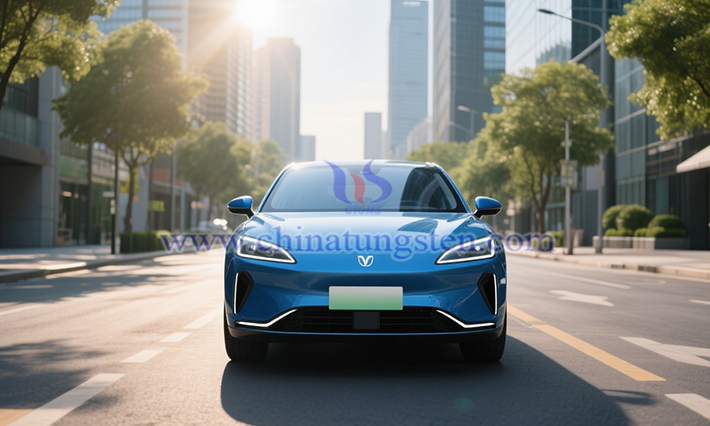
III. Advantages and Limitations of Tungsten Alloy Counterweight Blocks
1. Advantages Over Other Counterweight Blocks
Compared to lead and iron counterweights, high-density tungsten alloy blocks offer significant advantages.
In terms of density, lead blocks reach 11.34 g/cm³ and iron 7.87 g/cm³, while tungsten alloy ranges from 16.5 to 19.0 g/cm³. This allows tungsten blocks to achieve the same weight in a smaller volume, saving space.
For stability and durability, lead blocks oxidize and corrode easily, degrading performance, while iron blocks may shift or loosen due to magnetic interference or vibration over time, affecting balance. Tungsten alloy’s chemical stability resists corrosion and oxidation, extending lifespan, while its higher strength withstands impacts and vibrations, maintaining consistent balance.
Environmentally, lead’s toxicity poses risks during production, use, and disposal, whereas tungsten alloy’s non-toxic, eco-friendly nature meets modern green standards.
2. Notable Limitations
Despite its advantages, high-density tungsten alloy has limitations. The most prominent is cost—tungsten, a rare metal, involves high extraction and refining expenses, and its complex production requires advanced equipment and technology, driving up manufacturing costs. This restricts its use in cost-sensitive automotive markets.
Additionally, while its machinability is decent, the alloy’s high hardness increases tool wear during processing, raising machining costs and production timelines.
- Chinatungsten Online: www.tungsten-alloy.com
- CTIA GROUP LTD: en.ctia.group
- Tungsten News & Price: www.ctia.com.cn
- Molybdenum News & Price: news.molybdenum.com.cn
- Tel.: 86 592 5129696; Email: sales@chinatungsten.com





 sales@chinatungsten.com
sales@chinatungsten.com